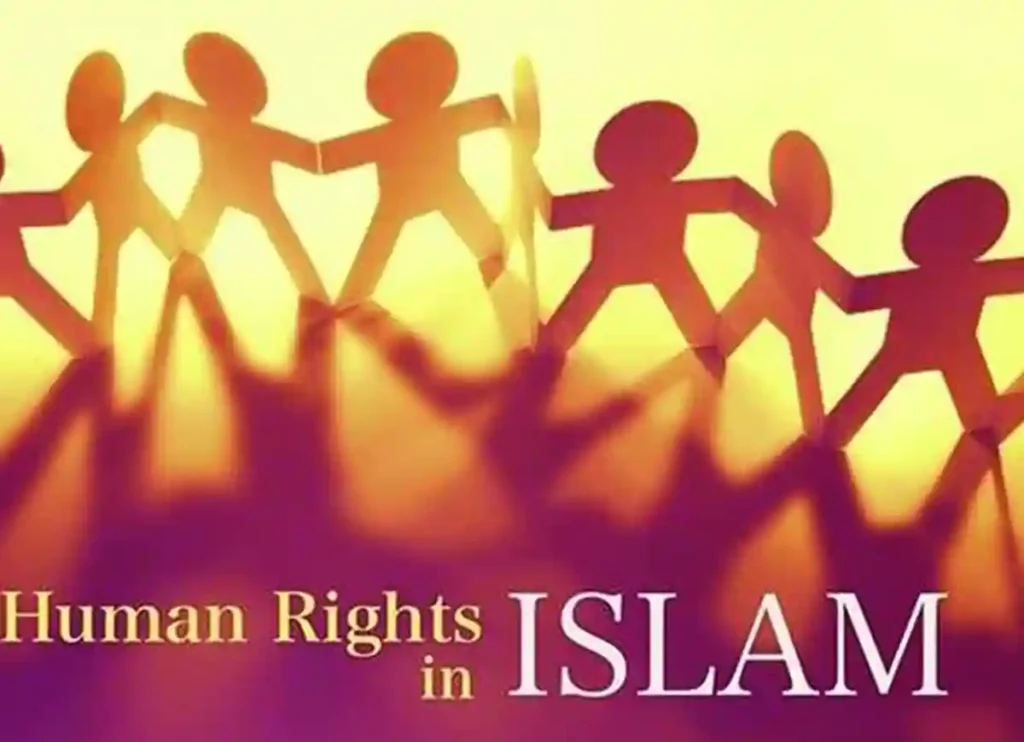On the 14th of December, 2023, I participated in an international conference celebrating the 75th anniversary of the United Nations’ Universal Declaration of Human Rights held at Princeton.
The event was co-organized with Princeton University’s James Madison Program of Princeton University Indonesia’s most prominent Islamic organization, The Nahdlatul ‘Ulama, and the Center for Shared Civilizational Values. The conference brought together intellectual and religious leaders worldwide to discuss the future of human rights.
These were my thoughts regarding “Islam and Human Rights”:
If this conference had been held some years ago, then there wouldn’t be any reason for anyone to discuss any changes within Islam regarding human rights. It was a time in which Christendom was plagued by religious zealotry and sectarian violence, while Islamic nations were viewed as more accepting. Therefore, minorities who were persecuted in Europe, such as Jews, frequently fled to the lands of Islam, particularly those of the Ottoman Empire, to find security and peace.
But a lot has changed since the time of Jesus’ birth. Christendom has changed for the better, while the Islamic world has transformed in a negative way. This is the reason why minorities are often escaping the former, fleeing violence and persecution or discrimination. Although these issues often have a secular cause, they also have religious roots too. These include harsh verdicts regarding apostasy or blasphemy, moral inequalities in the law, moral police, religious reasons for authoritarianism, and, at the extreme, even for terror.
These are serious issues that require a significant revival in Islam. The most important thing is to give the use of violence and coercion to promote religion. It is about rethinking Sharia as a tradition that is not merely based on Sharia and not as a law that is to have the authority of the government, but instead as an ancient tradition that is to be followed through the faith. It is also about redefining that the government is the guardian, not the genuine faith and its adherents and followers, but instead of all faiths and individuals.
How you make an Islamic argument to support this is a huge question, but here’s the essence of the matter: It’s about distancing the timeless facts of Islam from the historical context that led to their development.
We know how the Prophet Muhammad pe, ace be on him, first began teaching Islam in the year 610 in Mecca. This was an all-one era within an idolatrous culture. It was also peaceful and not coercive. “You are only a preacher,” the Quran instructed the Prophet, who told the polytheists “, To me, my religion, and to you, it is yours .”
Should the Meccan polytheists have heeded this plea and listened to their call, the story of Islam would have been completely different. They continued to persecute Muslims and, in turn, the latter required to follow the Old Testament template: a departure and then a state of theocracy that fought wars and occupied territories. Later, under the “caliphs,” or successors of the Prophet, Muslims expanded the template by establishing an empire of religion that spanned across India up to Spain.
The Islamic tradition began within medieval imperial circumstances, which imposed norms and restrictions that influenced the tradition. However, Islam often brought significant improvement to the conditions of those times that we can view as applying universal ethical concepts -or moral principles inherent to nature.
Many Muslims have already realized this difference on a crucial subject: slavery was thought to be part of Sharia before the 18th century when efforts to abolish it finally began. Nowadays, many religious leaders believe that slavery is a pre-existing problem that Islam recognizes as a historical issue. I attenuated it, but only to eliminate it as soon as possible since the Qur’an favours manumission and suggests an ethical path. Therefore, why not use the same argument for other topics in the tradition of Sharia, which restricts human liberty?
These are just a few topics Muslims must discuss during the twenty-first century. We are already discussing these issues. Some people leading the discussion are Nahdlatul Ulama and the chairperson Pak Yahya, with whom I am honoured to have this platform today.
There must be a different discussion about the issue, which is the last issue I’ll address. It’s not a matter of whether Muslims must fully recognize the universal rights of human beings. However, it is about whether these rights are fully extended to all Muslims.
It is because many Muslims across the globe think that, while constantly being asked to respect the rights of others however, their right to live a life of pious faith in traditional families might not be respected in the same way. To make matters worse, they are looking at the bloody conflicts that are taking place around the globe, particularly those in the Middle East, where Western powers that usually champion human rights, at times, are prone to deem the lives of Muslims less valuable. They are not able to be repaid. This blatant double standard creates an underlying suspicion or the opposite, resentment and rejection in their midst.
The fight in the name of human rights is an ongoing one. It’s a fight to persuade people to recognize these rights in specific contexts. In other situations, convincing people to be truthful and unbiased about their beliefs is a struggle. If we don’t work in both directions, we will have no chance of a brighter future for our uncertain world.
Categories: PRAYER (Salat), ALMS (Zakat), SAWN (Fasting) HAJJ (Pilgrimage) & DUA (Supplications), The Holy Quran, Quran Jaz 1- 114

